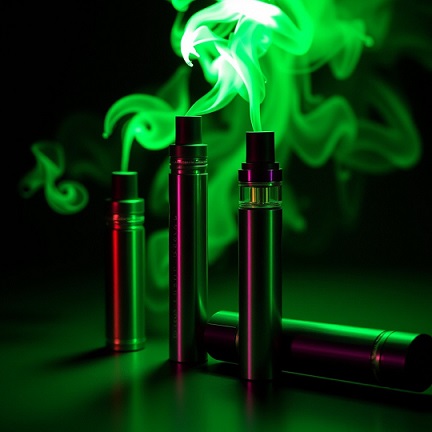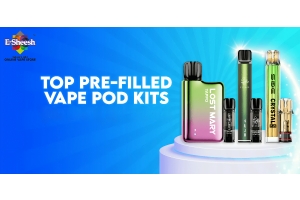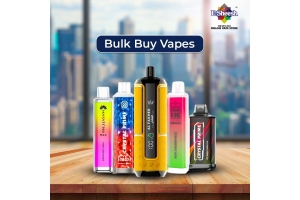Comprehensive Guide to the UK Disposable Vape Ban: Key Insights

The UK government plans to ban single-use disposable vapes by June 1, 2025. This initiative is one of the largest public health interventions in recent history, aimed at addressing concerns over the rising sales of these products, particularly among young people.
Reasons Behind the Ban on Disposable Vapes
Under the new regulations, selling single-use disposable vapes will be illegal. While these vapes have become popular for their convenience and ease of use, their health implications, especially for children, have sparked ongoing debates. The government seeks to protect young people from the attractive marketing strategies used by companies targeting them with single-use vapes.
Impact on Young Vapers and Public Health
By implementing this ban, officials hope to mitigate long-term health risks associated with vaping and prevent young individuals from becoming nicotine-dependent. The marketing of disposable vapes as trendy and harmless has contributed to increased vaping among youth, raising concerns among public health advocates.
As we approach this significant policy change, it’s essential for consumers to stay informed about the restrictions. Banning disposable vapes aims to protect future generations while promoting responsible vaping practices throughout the UK.
In March 2024, the UK government introduced the Tobacco and Vapes Bill, which includes the ban on single-use disposable vapes set to take effect on June 1, 2025. The main objective is to combat underage vaping.
Why the UK is Banning Single-Use Vapes
Single-use vapes are not rechargeable or refillable, leading to inefficient use of resources. Often discarded as litter or thrown in non-recycled waste bins, they contribute to environmental issues. Littering harms communities and introduces toxic substances into the ecosystem. When thrown into black bins, single-use vapes often end up in landfills or incinerators, wasting valuable resources and posing fire risks to waste management workers and the public.
To address these concerns, England, Scotland, Wales, and Northern Ireland will ban the sale and supply of single-use vapes starting June 1, 2025.
Are All Types of Disposable Vapes Facing a Ban?
In light of new draft legislation from the government, specific criteria now define what a ‘single-use vape’ is. This development is pivotal as it highlights which products may be affected by the potential ban:
Single-Use Definition: A vape is considered single-use if it is not intended for repeated usage, thus characterized as:
- Non-refillable devices
- Non-rechargeable devices
- Devices that are both non-refillable and non-rechargeable
Refillability Aspects: A vape is deemed non-refillable unless it features:
- A single-use container (vape pod) that users can replace themselves
- A container designed for user refilling in typical use
Rechargeability Aspects: Non-rechargeable vapes include those with:
- A battery incapable of being recharged
- A coil within a cartridge or pod that is non-replaceable, not available separately, and intended for single use
Component Availability: For a product not to be classified as single-use, its components like batteries and pods must be available for individual purchase.
In summary, if a vape's pods and coils cannot be replaced or its battery recharged, it falls under the ban. Most classic single-use and large puff vapes are implicated by these criteria.
Are Flavoured Vapes Getting Banned?
At present, there is no outright ban on flavored vapes. However, the Tobacco and Vapes Bill 2024 is under discussion and proposes to authorize the regulation of:
- Flavours and formulas of vaping products
- Packaging standards and product presentation of vaping goods
- Display and marketing practices at retail points
This legislation could significantly affect vaping products and e-liquids specifically, proposing to harmonize safety and appeal standards. Coupled with this, the 2026 UK Vaping Tax, as announced in the 2024 Autumn Budget, aims to impact e-liquid prices based on nicotine content. This complements government efforts to achieve a smoke-free nation by 2030.
What Retains Accessibility Despite the Ban?
Remaining unaffected by the ban are pod vape kits, which remain integral for those transitioning from smoking:
- Prefilled Pod Kits: These products offer a seamless experience similar to disposable vapes, featuring 2ml pods prefilled with beloved flavors and standard 2% nicotine strength. Their key benefit is the inclusion of a rechargeable battery, allowing day-long usage to effectively address nicotine cravings.
- Refillable Pod Kits: Offering customization and flexibility, these kits enable users to choose from a diverse selection of vape liquids, picking their preferred flavour and nicotine strength. With replaceable, refillable pods, these devices are designed to enhance the vaping encounter to suit personal preferences and needs.
Exploring options within the pod vape kits not only ensures continuity in smoking cessation tools available to users but also encourages a personalized approach to vaping.
Definition of a reuseable vape
To be reusable, a vape must:
- have a battery you can recharge
- be refillable with vape liquid
If the vape has a coil, it must be one that can be replaced by an average user – this includes any part of the product that heats or generates a vapour when interacting with the product’s ingredients.
The vape may be refilled by either:
- filling up the tank or cartridge with e-liquid
- inserting new pre-filled pods
Refills (pods or vape liquid refill bottles) should be separately available for users to buy.
If the vape has a coil, it may be replaced by either:
- removing and replacing it
- removing and replacing a pod or tank that contains it








